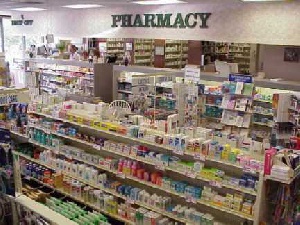Local pharmaceutical manufacturers are scaling up their investment in plants, machinery and new technologies in order to increase their share of the market, currently dominated by imports from mainly India and China, to 60 percent.
Imports currently account for about 70 percent of all pharmaceutical products consumed in the country, while local production accounts for about 30 percent.
Yaw Opare-Asamoah, Managing Director of Dannex Limited told the B&FT that: “We have seen massive investments in the local manufacturing sector to boost the capacities for local companies to move from market supply of 30 percent to about 60 percent in the short to medium term.”
Government last year made US$26 million grant available to a number of local drug manufacturers, through the Export Trade, Agricultural & Industrial Development Fund (EDAIF), to help them expand
A recent Oxford Business Group report noted that though more than 75percent of pharmaceutical companies in Ghana are locally owned, only 30percernt of the market is covered by local production, with the bulk of drugs imported from India and China.
The report further noted that the lack of resources has resulted in capacity underutilisation of less than 55percent on the average, although the local industry has an installed capacity for both solid and liquid dosage forms to supply all domestic needs as well as enough for export.
Mr. Opare-Asamoah, however, believes that the Akufo-Addo-led administration must increase their support to the sector.
“There are figures that we have around 60 to 70 percent of drugs imported into the country, but if we do not have some incentives which the NPP government has outlined in its manifesto that they intend to implement, we will still not be able to increase in local supply. When some of these incentives come in, we would be able to rapidly move to supply 60% of the local demand that we have targeted,” he added.
Pharmaceutical manufacturer have in recent times expressed worry over the about GH¢1.2bn debt owed drug suppliers by the National Health Insurance Scheme (NHIS).
This, Mr. Opare-Asamoah said, would bring back the ‘cash and carry’ system if not paid. “Obviously, when this is also addressed, it would inject some cash into the industry, and consequently increase production and supply,” he noted.
To help the industry to be competitive, he also admonished the government to set up a fund which would provide long-term funding that is comparatively cheaper than commercial loans to drug manufacturers.
Business News of Wednesday, 15 February 2017
Source: B&FT Online













